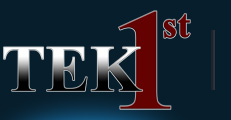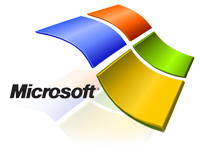Is your business in legal software compliance?
Software piracy is the unauthorized copying or distribution of copyrighted software. This can be done by copying, downloading, sharing, selling, or installing multiple copies onto personal or work computers. What a lot of people don't realize or don't think about is that when you purchase software, you are actually purchasing a license to use it, not the actual software. That license is what tells you how many times you can install the software, so it's important to read it. If you make more copies of the software than the license permits, you are pirating.
Simply put, making or downloading unauthorized copies of software is breaking the law, no matter how many copies or people are involved.
Whether you are casually making a few copies for friends, loaning disks, distributing or downloading pirated software from the Internet, or buying a single software program and then installing it on multiple workstations (including personal), you are committing copyright infringement—also known as software piracy.
It doesn't matter if you are doing it to make money or not — if you or your company is caught copying software, you may be held liable under both civil and criminal law. Civil penalties can be as high as $150,000 per software program infringed. In addition, introducing pirated software into your computing environment can open you up to the risk of damage to your network through defective software or malicious code.
Many businesses, both large and small, face serious legal risks because of software piracy. Under the law, a company can be held liable for its employees' actions. If an employee is installing unauthorized software copies on company computers or acquiring illegal software through the Internet, the company can be sued for copyright infringement. This is true even if the company's management was unaware of the employee's actions.
Quite simply, to make or download unauthorized copies of software is to break the law, no matter how many copies are involved. Whether you are casually making a few copies for friends, loaning disks, distributing and/or downloading pirated software via the Internet, or buying a single software program and then installing it on 100 of your company's personal computers, you are committing a copyright infringement. It doesn't matter if you are doing it to make money or not — if you or your company is caught copying software, you may be held liable under both civil and criminal law.
If the copyright owner brings a civil action against you, the owner can seek to stop you from using its software immediately and can also request monetary damages. The copyright owner may then choose between actual damages, which includes the amount it has lost because of your infringement as well as any profits attributable to the infringement, and statutory damages, which can be as much as $150,000 for each program copied. In addition, the government can criminally prosecute you for copyright infringement. If convicted, you can be fined up to $250,000, or sentenced to jail for up to five (5) years, or both.
You may not realize it, but software development involves a team effort that blends the creative ideas and talents of programmers, writers and graphic artists. And like most creative works, such as books, music and films, computer software is protected by copyright laws.
When you purchase software, you do not become the owner of the copyright. Rather, you are purchasing the right to use the software under certain restrictions imposed by the copyright owner, typically the software publisher. The precise rules are described in the documentation accompanying the software -- the license. It is imperative that you understand and adhere to these rules. Most often, they state that you have the right to load the software onto a single computer and make one backup copy. If you copy, distribute or install the software in ways that the license prohibits, whether you are swapping disks with friends and coworkers or participating in widespread duplication, you are violating federal copyright law. Even if you only help someone else make unauthorized copies, you are still liable under the copyright law.
- Greater exposure to software viruses, corrupt disks, or otherwise defective software.
- Inadequate or no documentation. No warranties.
- Lack of technical product support available to properly licensed users.
- Ineligibility for software upgrades offered to properly licensed users.



